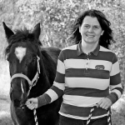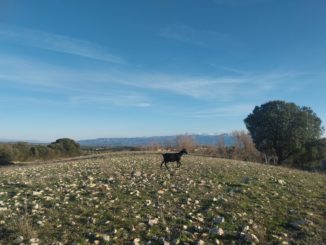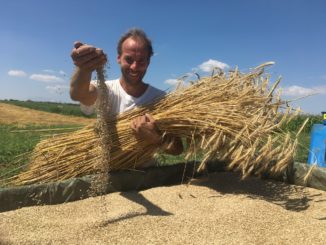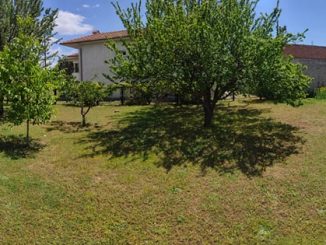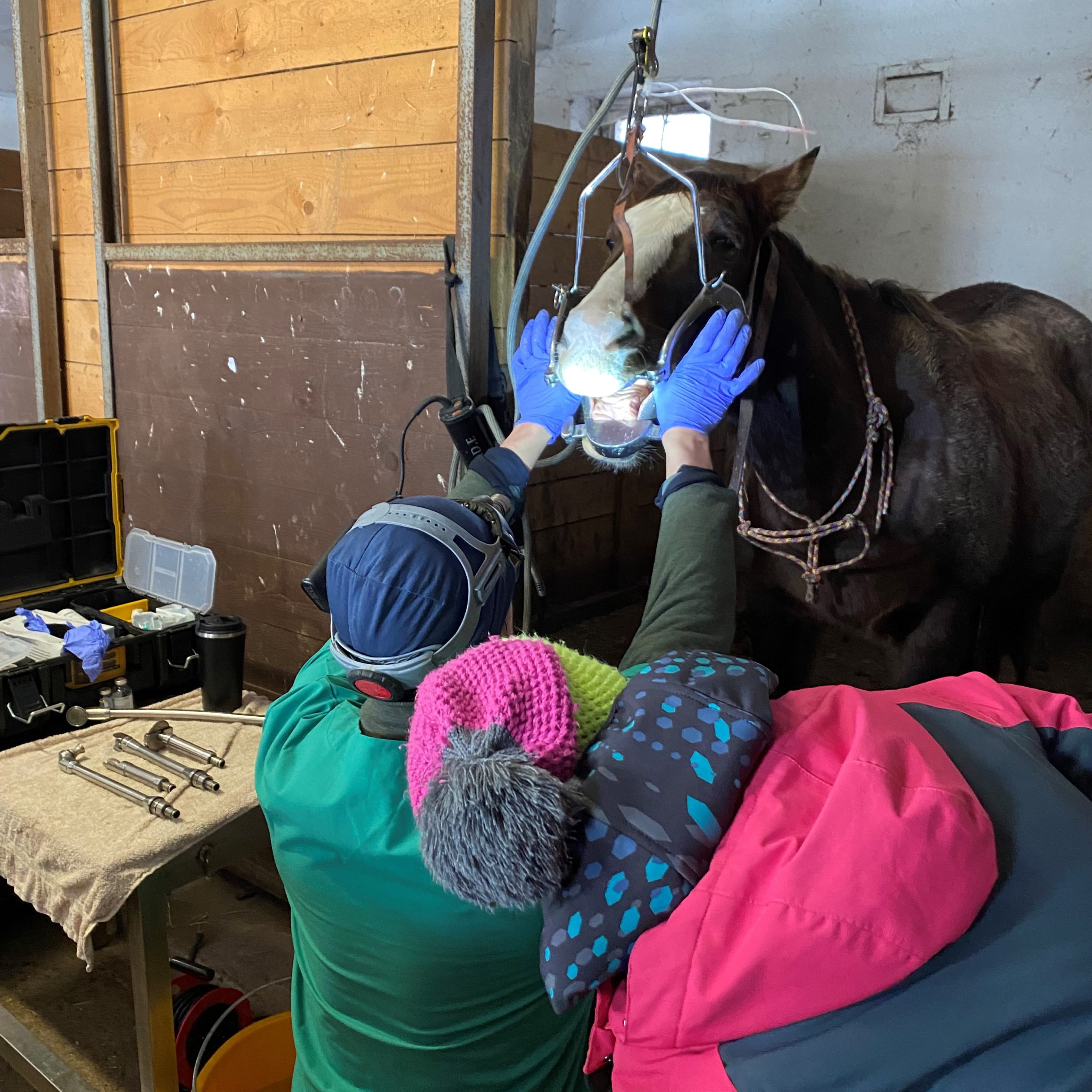
 We’re back with Czech farmer Terezie Daňková on Hoslovice ranch in South Bohemia. Terezie has previously shared with us experiences around access to farmland and digital barriers for farmers, and her thoughts on food self-sufficiency in Czechia.
We’re back with Czech farmer Terezie Daňková on Hoslovice ranch in South Bohemia. Terezie has previously shared with us experiences around access to farmland and digital barriers for farmers, and her thoughts on food self-sufficiency in Czechia.
Terezie’s first letter from the farm is a wintertime ‘Czech-in’ on animal welfare. This is the season for the cattle, sheep and hardworking horses on the ranch to take a rest. As well as feeding the animals, she gives them special care in the winter months before they return to pasture. Like the animals, pastures must be carefully managed, to allow them to play a role in efforts to mitigate the climate crisis.
Big things are happening in farming right now: colleagues are out on the streets, hay and straw (sometimes the more fragrant stuff) are in places where they were last found in the late Middle Ages. But the farms have to live on. Caring for the animals doesn’t wait – not even in winter. Our farm is pastoral, we keep cattle and sheep, and we turn the herds by horses.
Of course we have to feed and water the horses, cows and sheep all winter. What is less well known is that we need to use the winter period for preventative medical procedures to improve the welfare of our animals.
Cattle care
We take blood from every head of cattle and have it analyzed for the diseases listed by the state animal health department. Because our cows are normally out on the pastures, where no-one touches them, we have to bring the herd through an alley where we can give each animal individual care. Once we have a blood sample, we also look at the pregnancy rate of the cows, general health, mineral and vitamin levels.
The next time the herd goes through the alley after about a fortnight, we can replenish minerals and vitamins, deworm the herd, and trim hooves. A visit to the doctor and a pedicure in one.
Then we leave the herd to chew the cud and await the arrival of the new calves in the spring. The bulls are separated from the herd and will not return until early summer. This allows us to check that the calves are born in the spring, after nine months of gestation.
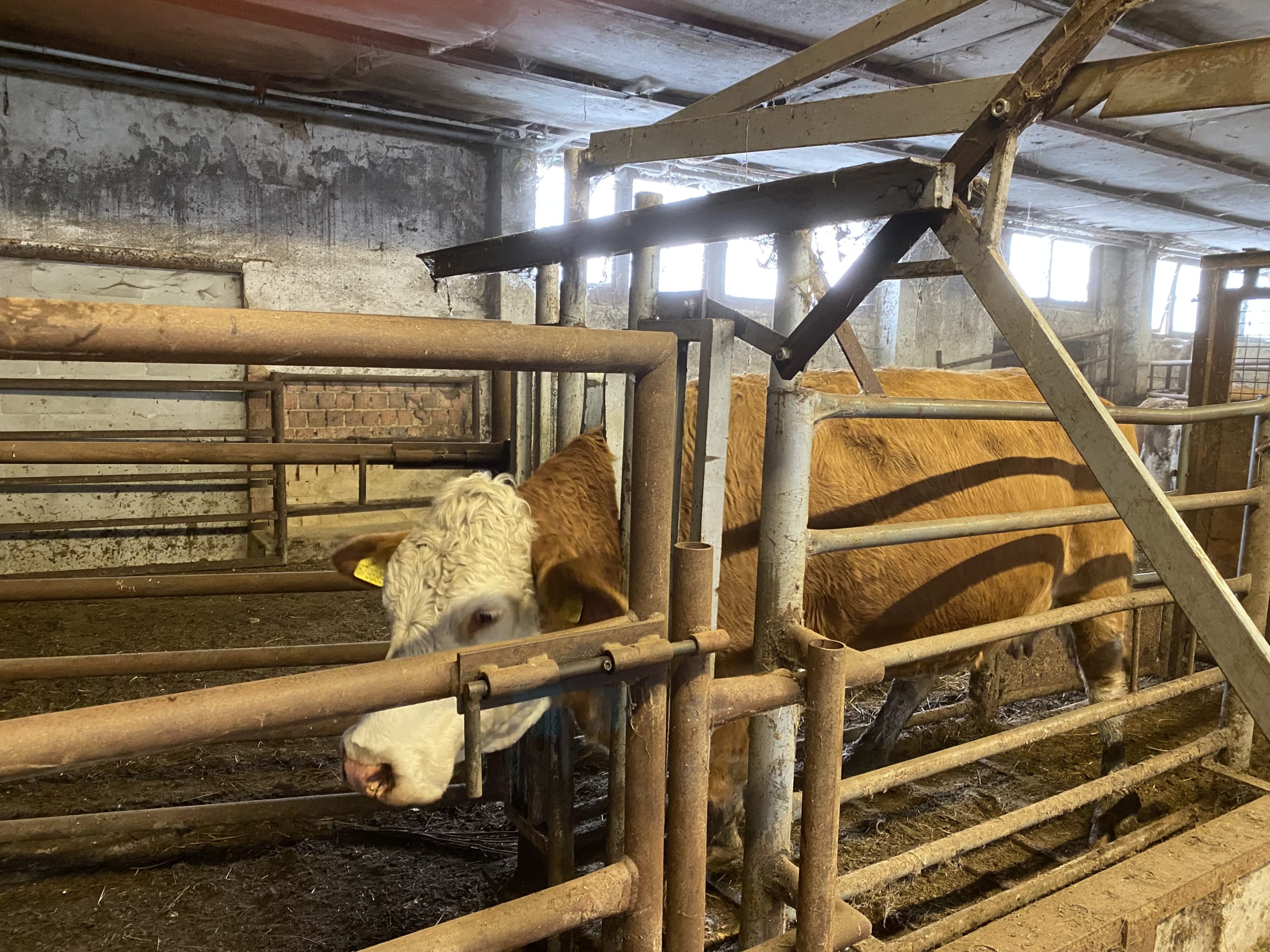
Horse health
Also, our horses deserve not only rest after a busy season, but also preventive health care. We will also perform blood tests on them and supply them with vitamins and minerals. They go to the farrier for a pedicure several times a year.
We take advantage of the winter pause for dental treatment. This is more important for horses than for other animals. Other animals only use their teeth to eat. We put a bit in the horse’s mouth to help us control the horse. It is therefore important to know that there is nothing in the horse’s mouth that gets in the way and the horse is not uncomfortable with the mouthpiece. The slightly dazed horses are happy to have their dental hygiene done and the doctor’s office is regularly visited by individual horse lovers taking care of their pets. The doctor takes a full day to care for seven horses. He needed two days on our farm, we have a lot of horses.
Sheep good until summer
For sheep we do special annual care in the summer. We shear the sheep in the summer so that their wool can grow back in the warm weather. There is no special care in the winter.
Now that all the special care is done, we feed the animals and wait for spring.
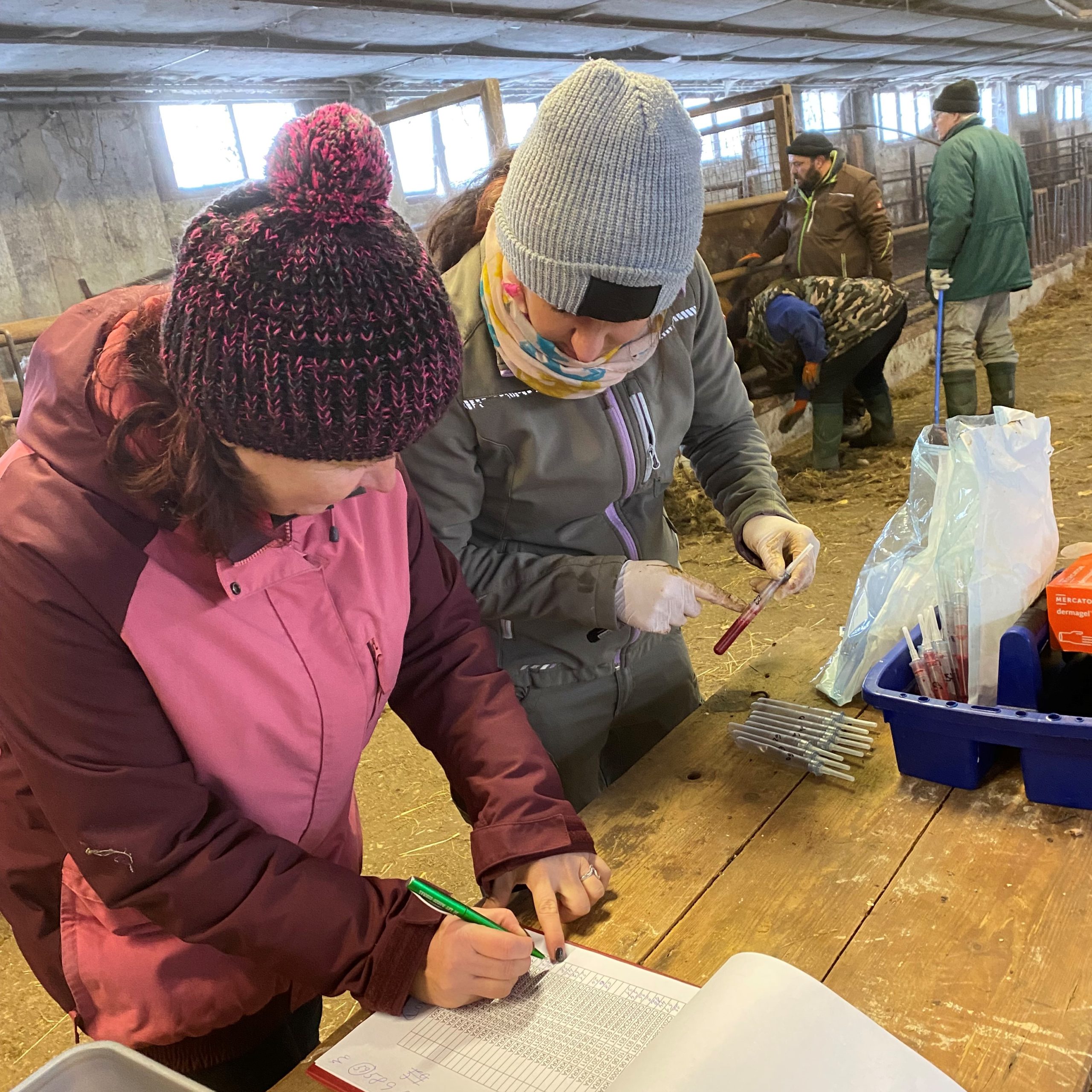
Climate solutions
Some people currently see the solution to the climate crisis in limiting meat consumption or going completely vegan. For many, this is personally easier than limiting travel or even limiting the use of information technology, which also has a large ecological footprint.
However, I am deeply convinced that pastoral animal husbandry not only does not worsen the climate crisis, but rather contributes slightly to mitigating it. The animals graze themselves for most of the year, no one has to harvest their food or drive them anywhere. Herds increase the carbon sequestration capacity of pastures. Grazing animals cannot release more carbon into the air than they have previously consumed in the plants they feed on. Of course, pastures must not be overgrazed and must be well managed. If we do this, their ability to sequester airborne carbon is greater than the amount that the herds release into the air.
And animal welfare according to the animal needs and consumer expectations is one of our strongest branding and selling points.
More from Czechia
More letters from the farm
Farm to Forms – the Epicness of Trying to Establish and Run a Farm in France
Letter From The Farm | Restoring Nature, Improving Productivity
Letter From The Farm | The More-Than-Human Magic of Transhumance
Letter From The Farm | Watching, Waiting and Knowing When To Help
Letter From The Farm | Learning from a Campesino Family in Cuba
Letter from a Farm | Saving Carrottop – the Life of a Cow in Mayo


